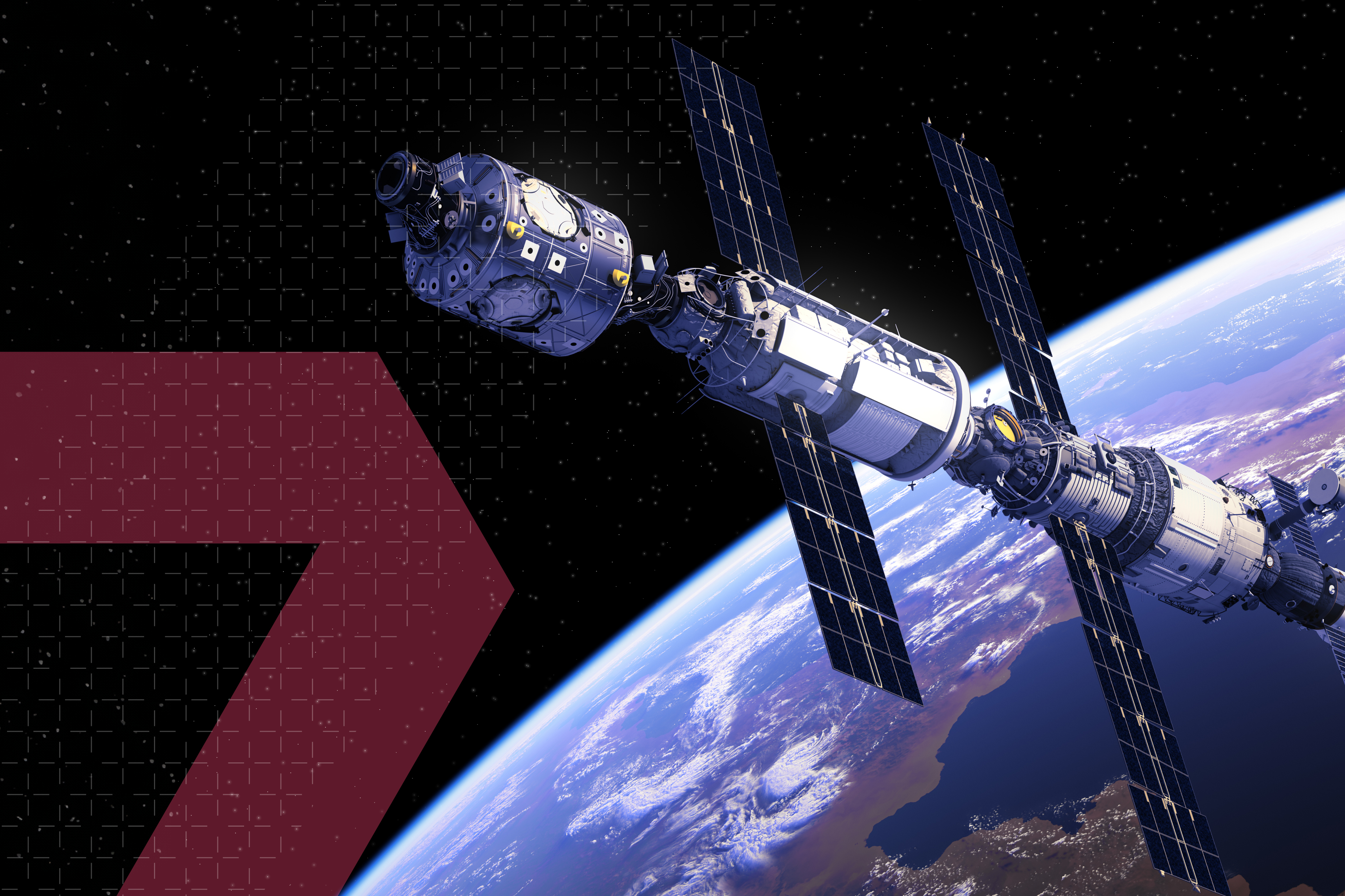Delivering future skills to support active debris removal
The Satellite Applications – Active Debris Removal report developed by the Workforce Foresighting Hub provides an in-depth analysis of the space sector. The study is released together with the Satellite Applications Catapult and focuses on Active Debris Removal.
Space technology, and satellites in particular, play a crucial role in our everyday lives, and as our skills have become more advanced, so too has the requirement to manage and update the technology systems we use. With each new satellite launch or significant advancement in space technology, an older piece of equipment can become redundant.
The National Space Strategy outlines ambitious goals for the UK to become a global leader in space technology, emphasising sustainability, innovation, and collaboration, with strategic missions to actively remove debris from space, with key milestones set for 2025 and 2026.

What does it say?
The latest Workforce Foresighting Hub report, carried out by Satellite Applications Catapult, highlights the need for the right future skill sets to support the potential disposal or relocation of old satellites to, what are known as ‘Parking Orbits’. This is what the National Space Strategy describes as an area where they will not impact our communications, travel or activities in space.
The report outlines that the UK space sector is currently at a pivotal juncture where national strategy and industry capability must align to address the multifaceted challenges presented by increasing space activities. It provides a dynamic and data-intensive approach with detailed insights and actionable recommendations, to prepare the workforce for future challenges and opportunities.
What are the key highlights?
The report highlights the following priority technologies that will address critical challenges within the space sector:
- Rendezvous and Proximity Operations (RPO): Essential for active debris removal and satellite servicing missions – this technology enables spacecraft to safely approach and interact with other objects in orbit with high precision.
- Space Situational Awareness (SSA): Involves monitoring, tracking, and managing space traffic to prevent collisions and manage space debris. This includes the development of sophisticated surveillance and tracking systems.
- Spacecraft and System Design: Advanced design techniques for spacecraft that ensure they are not only capable of handling the rigours of space missions but also a fresh emphasis on end-of-life disposal and debris mitigation measures.
Specific areas of concern
Several critical issues are raised relating to the alignment of current standards with Future Occupational Profiles (FOPs). Analysis focuses on the suitability of the Institute for Apprenticeships and Technical Education (IfATE) standards in addressing the capabilities required for future roles in the Active Debris Removal (ADR) sector. The primary areas of concern highlighted are around the suitability of current standards, future profiles coverage and gaps, misalignment of training and future profiles, as well as sector and regulatory concerns.
What are the key recommendations?
The report says that immediate action is required and makes some key recommendations in terms of organisational and occupational change, in order for the UK to be recognised as a future leader in the space sector. It says we must use the Future Occupational Profiles to address skill gaps, to update standards and provide CPD courses for current and transitioning workers. It suggests:
- Reskilling and upskilling the current workforce by tailoring content to match new capabilities.
- Recruiting and reskilling individuals with transferable skills from other sectors such as Maintenance and Operations Engineering Technicians.
- Integrating future skills training with formalised changes to occupational standards.
- Implementing modular changes to existing educational courses.
- Commissioning new Continuing Professional Development (CPD) courses.
By addressing these recommended actions, the report aims to ensure that the UK’s space sector is equipped with a skilled workforce, capable of meeting the demands of new missions, particularly in Active Debris Removal.
Where has this skills information come from?
This new study is a collaborative approach involving key stakeholders which is crucial for the success of the UK’s space initiatives. The stakeholders include:
- Innovate UK: Driving innovation through funding and support for R&D projects.
- UK Space Agency: Providing strategic direction and oversight for national space activities.
- Ministry of Defence (MoD): Ensuring that space capabilities align with national security objectives.
- Private Sector Companies: Engaging with firms like Astroscale and others that are leading technological advancements in space.
- Civil Aviation Authority (CAA): Providing the regulatory framework within which all UK operations must comply.
Related programme

Workforce Foresighting
How do we build a skilled workforce for tomorrow’s industries? The Workforce Foresighting Hub has developed a structured process, aligned with national policy, to help deliver a workforce to exploit innovative technologies in the UK. We’re supporting industry, policymakers and educators to adapt to continuing change.


